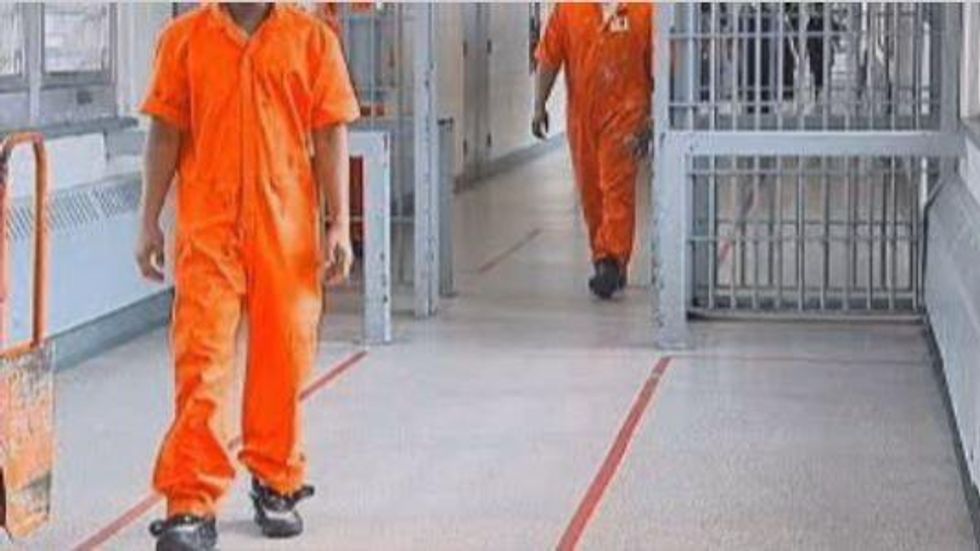Mike Bloomberg, still the mayor of New York after all these years, has announced a new four-year program to keep prisoners from reoffending after their sentences, funded by $9.6m from Goldman Sachs. When we said we wanted to see the bankers in the clink, this is not what we meant.
It may sound like a nice philanthropic gesture, but that $9.6m sum isn't a donation; it's a loan. As City Hall explained, Goldman is being incentivized to produce results - if recidivism drops by 10%, Goldman gets the money back, and if it drops further then the GS boys will turn a small profit. (One idea for Lloyd Blankfein: if you really want to end up in the black, just hire the ex-offenders to work at Goldman, where I can't imagine they'd have much trouble fitting in.)
New York's foray into cash-for-results social services is part of the voguish infatuation with "social impact bonds", in which a private investor invests in a public service and makes a positive return only if things improve. They are currently all the rage in Britain, whose coalition government espouses a hazy ideology called "the big society" to obscure a much clearer ideology of across-the-board cuts. And they've begun to seduce US policymakers. The Goldman-Rikers deal is the first social impact bond in America, though governments from Massachusetts to Ohio are preparing to jump on board.
You might wonder why, since reducing crime and offering better lives to past offenders are obvious social pluses, the government doesn't just pay for such a program itself. (The usual cries about public sector inefficiency don't apply. The ex-offender education scheme isn't a state program; it's administered by a nongovernmental social enterprise.) Alas, this is the nature of Bloombergism. There is no social problem that can't be reduced to metrics, no public function that an unaccountable private undertaking can't perform better, and no incentive like the profit motive.
How much does Bloomberg believe in this new plan? So much so that he is personally guaranteeing to make Goldman whole if the program doesn't work. Our billionaire mayor's own philanthropic foundation will cut a $7.2m check to the social service provider with which Goldman is contracting if the bank needs to be repaid. Say what you like about risk and reward; the plan announced Thursday is an exceedingly safe bet for the bank but a giant gamble for us.
Corporations could make money if an adoption agency finds a home for a child, or if you survive a heart attack, or if your kid's reading scores on one of his five thousand exams increase by such and such percent. This latest neoliberal swindle is the stuff of a million MBA case studies, and the wet dream of a new crop of young, pseudo-beneficent capitalists who think their guilt at profiting from inequality can be assuaged by "humanizing" their businesses.
There is, of course, nothing new about making money on inmates. The majority of Louisiana's prisoners are housed in for-profit facilities - and as a grim Times-Picayune expose recently disclosed, the prisoners are traded around by sheriffs with a financial stake in keeping the cells full to bursting. In some parts of the country it's so bad that prison megacompanies construct shiny new facilities on spec, in order to pressure local government to take their business: that is to say, to lock people up. So I suppose the transformation of Rikers Island into a Goldman workhouse could have been worse. At least they only make money if recidivism rates go down - though you will not be surprised to learn that in other states Goldman, like most other big banks, has underwritten the bonds to outsource correctional facilities to the private sector.
If this goes well, the Bloomberg team has said, it'll be the model for all sorts of for-profit social initiatives. Corporations could make money if an adoption agency finds a home for a child, or if you survive a heart attack, or if your kid's reading scores on one of his five thousand exams increase by such and such percent. This latest neoliberal swindle is the stuff of a million MBA case studies, and the wet dream of a new crop of young, pseudo-beneficent capitalists who think their guilt at profiting from inequality can be assuaged by "humanizing" their businesses. It's the corporate equivalent of paying extra for the free-range chicken at the market, though now, classically, the corporations have figured out how to profit off their philanthropy as well.
We already know this song. In any situation where the private sector and government are both involved, there's an implicit guarantee: when it all goes wrong, the corporation can bail and the state has no option but to pick up the slack. It's dandy enough when privatized rail or for-profit security services are humming along, but when harder times come the corporations, whatever their bushy-tailed do-gooder capitalist roaders may have promised, have no incentive to make things better. Replacing public responsibility with private profit is a one-way bargain. There is no line item for the common good on an annual report.
In such a system the private sector may make money, but ultimately we're the ones who shoulder all the risk - a situation that the bankers at Goldman will find very familiar. But if we were really serious about reducing recidivism rates, offering second chances to young offenders, improving quality of life in the city, or just about any other public good, there is a much simpler way to do it than through a baroque "social impact bond". It's called public spending, and the best way to fund it is to tax, tax, tax. I can think of a bank where we could start.
